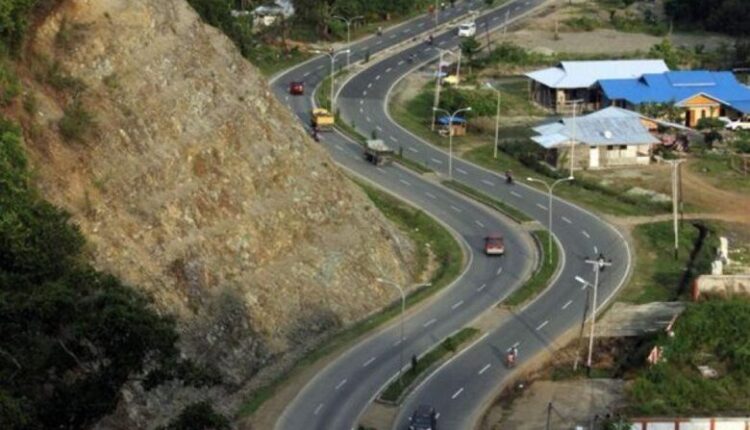Papua’s Significant Progress Through Holistic and Inclusive Development
By: Natalius Nawipa*
Over the past decade, Papua has undergone a significant transformation in more inclusive and sustainable development, thanks to policies implemented by the central government under the leadership of President Joko Widodo. One of the important steps in this development is the implementation of the Papua Development Acceleration Master Plan (RIPPP), which is designed to improve the quality of life of the Papuan people by increasing the Human Development Index (HDI) and reducing poverty rates.
The government has succeeded in significantly increasing Papua’s HDI in the last 10 years, with a primary focus on three sectors: education, health, and community productivity. This increase demonstrates the government’s commitment to creating development equality between Papua and other regions in Indonesia, despite Papua’s vast and difficult-to-reach geographical challenges often being obstacles.
One of the government’s main priorities in the RIPPP is improving the education sector in Papua. Various programs have been launched to expand access to quality education for Papuan children, including the construction of new schools, the provision of scholarships for outstanding students, and training programs for teachers. This is done to prepare the younger generation of Papua to be able to compete on the national and international stage. Education is believed to be an important key to the development of a better Papua, because through education, people can develop the skills and knowledge needed to create positive change in their communities.
Minister of Education and Culture, Nadiem Makarim, said that education is a priority in Papua’s development because the young generation of Papua must have the same access as other regions in Indonesia in order to compete globally and bring positive change to their region.
In addition to education, the health sector is also a major focus in development in Papua. The government consistently allocates significant funds to improve health facilities, as well as implementing various public health programs. Handling stunting and improving the nutrition of Papuan children are of particular concern, with reduction targets set each year. This improvement in health quality is expected to have a positive long-term impact on the productivity and welfare of future generations.
Minister of Health, Budi Gunadi Sadikin, said that the health of the Papuan people continues to be a primary concern with a focus on addressing nutritional issues and improving health services in remote areas, in order to create a healthier and more productive society.
In supporting the achievement of development targets, the government has also increased the allocation of Special Autonomy Funds (Otsus) for Papua. Over the past 10 years, the amount of funds allocated has increased significantly and has been used to build basic infrastructure such as roads, airports, ports, and basic service facilities such as schools and hospitals. This is clear evidence that the development of Papua is not only seen as a national priority, but also as a form of government commitment to encouraging progress throughout the country.
Acting Governor of Papua, Ridwan Rumasukun, said that the Special Autonomy funds greatly support infrastructure development in Papua, especially in accelerating connectivity and improving the quality of life of previously isolated communities.
Infrastructure development is a crucial step in improving connectivity and mobility for Papuans. Projects such as the Trans-Papua road, new airports, and important ports have accelerated access to services and goods in previously inaccessible areas. This increased connectivity has not only impacted people’s welfare, but has also opened up new economic opportunities, especially in remote and isolated areas.
Minister of Public Works and Public Housing, Basuki Hadimuljono, said that infrastructure is key to opening access to remote areas in Papua and encouraging economic growth in the region.
Another strategic step is the policy of regional expansion in Papua with the formation of four new autonomous regions (DOB). This policy is designed to accelerate development and facilitate access to public services for people in these new regions. With the existence of new provinces, government services can be closer to the community, so that local needs can be accommodated more effectively and efficiently. Regional expansion is also considered successful in encouraging increased welfare and more equitable development throughout Papua.
Minister of Home Affairs, Tito Karnavian, said that the expansion of regions in Papua is an important step to ensure that each region receives faster attention and services, so that equitable development can be achieved.
The success of RIPPP is also inseparable from the careful planning and involvement of all parties, both the central government, regional governments, and the Papuan people themselves. This program is designed through a long-term approach with a five-year action plan that focuses on investment in education, health, and infrastructure development. The government is also preparing the National Medium-Term Development Plan (RPJMN) 2025-2029, which will focus on strengthening the local industrial sector and increasing investment in Papua.
Overall, development in Papua over the past 10 years has shown significant progress. The central government continues to push initiatives aimed at reducing social and economic disparities in Papua, while ensuring that development is carried out in an inclusive and sustainable manner. The existing challenges continue to be addressed through a more strategic and integrated approach, with the hope that Papua will become more advanced and prosperous in the near future.
*The author is a native Papuan student
